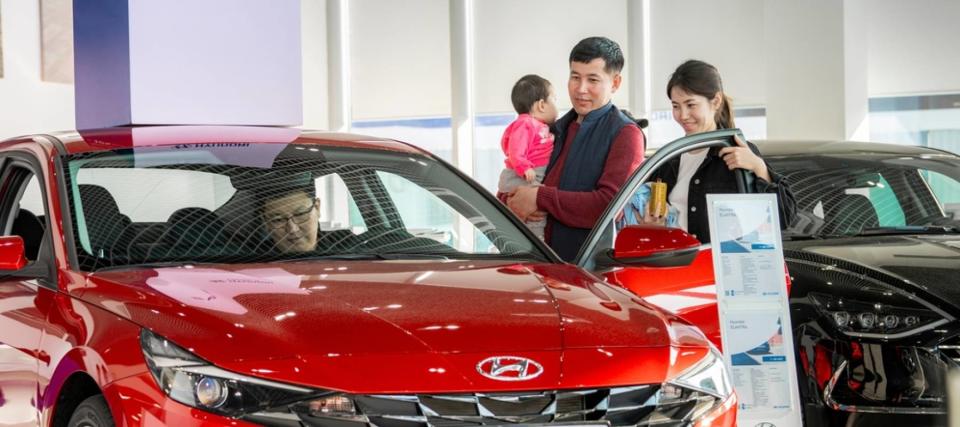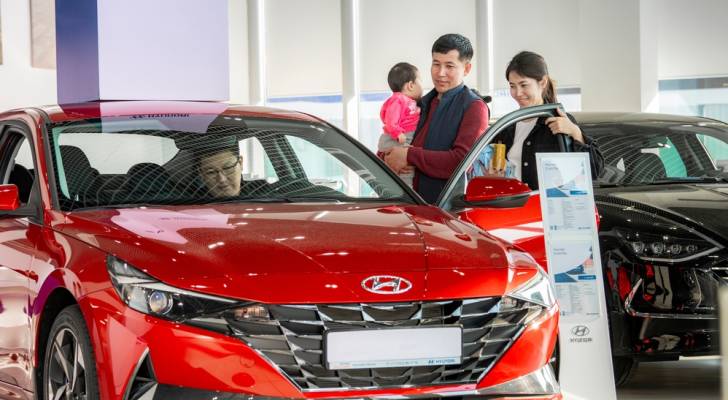Two of Korea’s best-known car brands are now the subject of a class action lawsuit.
Filed in court for the Eastern District of Wisconsin on February 17, the lawsuit seeks damages and an injunction for owners of cars whose Kia or Hyundai were designed without a key safety feature that helps prevent they are not stolen.
Don’t miss
The lawsuit specifically calls out the role played by a viral TikTok challenge in an “explosive” spike in car thefts in recent years. The social media trend has seen thieves hot-plug some Kia and Hyundai cars and SUVs using just a USB cable – and if they were feeling fancy, a screwdriver.
It’s the same challenge that prompted State Farm and Progressive to announce that they are now refusing to insure certain models made by major South Korean auto companies because of their ease of flight.
“[This is a] serious issue affecting our customers and the entire auto insurance industry,” State Farm said in a press release.

Which models are impacted?
The Kia and Hyundai models targeted by TikTok thieves were released between 2011 and 2021.
According to 2021 insurance claims records from the Highway Loss Data Institute (HLDI), Kia and Hyundai models from 2015 to 2019 are about twice as likely to be stolen as other vehicles of the same age.
What makes them so easy to steal is that many of them lack basic theft prevention technology called an electronic immobilizer, a tool that prevents the engine from starting unless the correct key is in place. be present.
According to the HDLI, immobilizers are found in 96% of vehicles sold for model years 2015 to 2019, but only 26% of Kias and Hyundais had them at the time, making them vulnerable.
Without an immobilizer, anyone can break into a car and easily bypass the ignition, the HLDI said. And they don’t need to be a professional car thief to be successful – they just need TikTok.
The class action lawsuit in Wisconsin claims that Kia and Hyundai “have long known or should have known about the defect” in their cars. He goes on to state that instead, the manufacturers “failed to disclose and actively concealed the defect from the public, and continue to manufacture, distribute and sell the vehicles without disclosing the defect.”
While both Kia and Hyundai are now working on providing free software updates to deal with the problem, the plaintiff in the lawsuit (whose car was stolen in 2021) believes the companies delayed implementation of this software update before “as a cost-saving measure to improve their profitability.”
However, the number of flights recorded before the release of the update is alarming. The Chicago Police Department has warned of an “astonishing 767%” increase in vehicle thefts in 2021 due to the TikTok challenge.
And in Los Angeles, Kia and Hyundai vehicles accounted for nearly 20% of vehicle thefts in 2022, up from 13% in 2021, according to the Los Angeles Police Department — both staggering numbers considering the number of car brands available on the market.
Learn more: Wealthy Young Americans Have Lost Confidence in the Stock Market — Betting on These 3 Assets Instead
Too risky to insure
Comprehensive car insurance will usually cover theft, as well as the cost of repairing the damage caused by the break-in.
That means insurers are footing the bill for this unfortunate TikTok trend — and for State Farm and Progressive, that’s enough.
“This explosive increase in theft in many cases makes these vehicles extremely difficult for us to insure,” Progressive spokesman Jeff Sibel said in a statement emailed to CNN.
“Over the past year, we have seen rates of theft of certain Hyundai and Kia vehicles more than triple, and in some markets these vehicles are almost 20 times more likely to be stolen than other vehicles. “
In response, Progressive has “limited” its sale of new insurance policies on specific Kia and Hyundai models, while raising the price of coverage for those cars.
State Farm made a similar decision to “temporarily stop writing new business in certain states for certain model years and trim levels of Hyundai and Kia vehicles,” but the insurer has yet to confirm which cities or states are touched.
What to do if you have an at-risk model?
The police have issued many tips on how to protect vehicles that are at high risk of theft.
Simple things like using a steering wheel lock, keeping valuables out of sight, and parking in a well-lit, well-trafficked area can go a long way in preventing theft.
You can also consider installing alarm systems, anti-theft dash cameras, and vehicle tracking systems to deter thieves and increase your chances of finding your car if stolen.
It’s important to remember that State Farm and Progressive only limit their sales of “new” insurance policies to high-risk Kia and Hyundai vehicles.
If you own one of these vehicles and already have insurance in place, taking steps to secure your vehicle and limit the risk of theft could help keep your insurance costs under control.
Other ways to control your insurance costs
On average, Americans pay $1,553 a year for car insurance. And while coverage is legally required in most states, paying too much for insurance isn’t.
So even if your insurer isn’t threatening to revoke your coverage, if you haven’t gone through your options recently, you could be overpaying up to $500 a year on this essential policy.
Your best chance of saving money on your car insurance is to spend time shopping around and comparing offers.
Typically, this can mean setting aside hours – or even an entire day – to call different insurers just to provide them with your contact details to get an accurate quote. But with today’s comparison sites, in as little as three minutes you can find the best car insurance deals all in one place.
This article provides information only and should not be construed as advice. It is provided without warranty of any kind.
